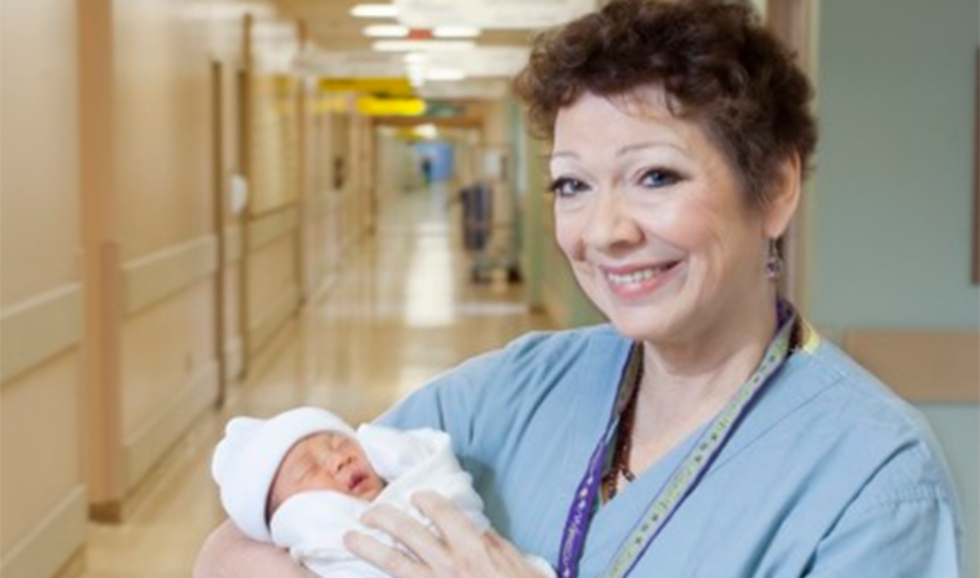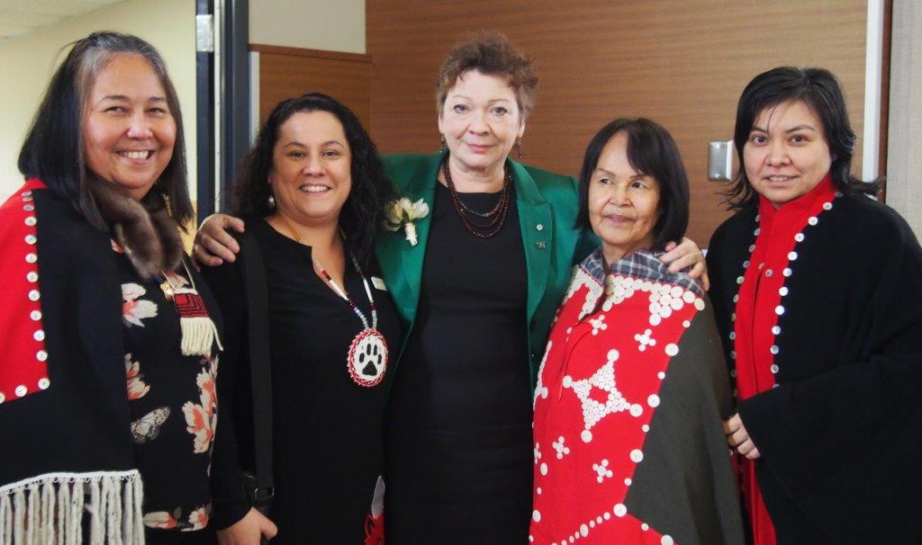‘When I started delivering babies, I knew’

1981 graduate Jan Christilaw, whose work in women's health has saved thousands of lives, will receive the Distinguished Alumni Award at the fall 2018 convocation. Photo courtesy of B.C. Women's Health
In 1978, Jan Christilaw was travelling around South America when her dad got a hold of her on the phone from Ontario. He said she’d received a letter scheduling an interview for medical school at McMaster — in a few days. Christilaw got to the airport in Lima, Peru, and took a 10-hour flight to Canada, getting back just in time for her interview.
“I think they thought it showed I was highly motivated,” she says with a laugh.
Since then, Christilaw, who graduated from McMaster with an MD in 1981 and is receiving the Distinguished Alumni Award, has flown to countries all over the world. Recognized as a global leader in maternal and newborn health, she has received the Queen Elizabeth II Diamond Jubilee Medal and is a Member of the Order of Canada.
Christilaw’s work to improve women’s health worldwide has taken her to Africa multiple times a year for more than two decades. As recently as October, she was in South Sudan, working on a United Nations Population Fund project called Strengthening Midwifery Services in South Sudan, which aims to re-establish medical care by working with local doctors and midwives.
In fact, she was at the airport in South Sudan, waiting to start the journey back home to Vancouver, when she received another message from Canada — this time from Governor General Julie Payette’s office, inviting her to join an official trip to Africa two weeks later.
“So I got to Canada and turned around two weeks later and flew back to Africa as part of the Governor General’s visit,” Christilaw says.
“And I came back with my heart bursting: The discussions we had, the opportunities we had to exchange ideas on the ways that Canada can do better in these countries — it was the experience of a lifetime.”
That’s saying a lot, for someone who has travelled the world to help at-risk mothers, and who has delivered thousands of babies in Canada, eastern Africa, and South and Central America.
“Maternal mortality and women’s to access to good care is one thing in the world that is the most unequal,” she says. “It’s profoundly unfair that hundreds of thousands woman die in childbirth every year.”
Christilaw has served as president of the Society of Obstetricians and Gynecologists of Canada, and was the founding chair of the Aboriginal Maternity Committee of the B.C. Perinatal Health Program.

Now director of Women’s Health with the Canadian Network for International Surgery, she continues to teach and see patients at the University of British Columbia’s faculty of medicine.
Christilaw didn’t set out to work in obstetrics. She was training to be a family doctor, and did some obstetrics so she could be good at delivering babies.
“But I saw how amazing women are in their strength and their resilience,” she says. “And I was actually with women and families at the high point of their lives and saw how you can, by your actions, make a huge difference to how they experience that.”
She was so blown away by the experience — “smitten” as she says — she begged the school to let her change course and join the obstetrics and gynecology residency. “Luckily for me, I had support from the department and the hospital — I probably wouldn’t have been able to do that now,” she recalls.
Interestingly, she says, more schools are now following McMaster’s approach to teaching medicine. “Even back in the ’70s and ’80s, McMaster promoted problem-based learning and patient-centred learning, which was quite radical then. But it’s quite standard now,” she says.
“You’d take a clinical scenario and learn from it instead of from textbooks. They wanted us to know that learning is about context, and that context is about people.”
The most important thing she learned at McMaster is how to learn, she says.
“I remember how overwhelming it seemed when I started medical school. It seemed that there was so much to know if I was going to be a great doctor, and that it was almost impossible to learn it all,” she says.
“Then there was a Eureka moment, quite early on actually, when it occurred to me that knowledge was changing so fast that you could never know it all. Learning how to learn and how to find the information that you needed was much more important.
“That, I think, is one of the great strengths of the McMaster programme. It creates life-longer learners in the truest sense. I am still learning, still trying new things, still curious and hungry for knowledge all these years later. That is the true gift that McMaster gave me.”
Dr. Jan Christilaw is receiving a Distinguished Alumni Award at the fall 2018 convocation. The award honours graduates who have attained a national or global level of distinction and achievement through scholarship, research, teaching, creative contributions to the arts or sciences, or service to society.


